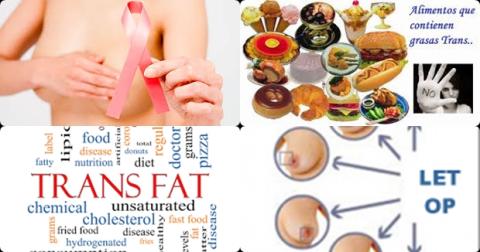
Objectives:
Although the relationship between dietary intake and serum levels of trans fatty acids and risk of breast cancer has been investigated extensively, findings are inconsistent. Therefore, this review article has been conducted.
Do dietary intake and serum levels of trans fatty acids increase risk of breast cancer?
Study design:
This review article included 6 cohort studies and 1 nested case-control study on total dietary trans fat intake and 1 cohort study and 4 nested case-control studies on serum trans fatty acids.
Participants were apparently healthy aged 26 years or older.
Results and conclusions:
The investigators found no significant relationship between dietary intake of total trans fatty acids and risk of breast cancer [pooled effect size = 1.02, 95% CI = 0.95-1.10, p = 0.403].
The investigators found in 3 effect sizes from 2 cohort studies and 1 nested case-control study, no significant relation between dietary intake of conjugated linoleic acid (CLA) and risk of breast cancer [pooled effect size = 1.05, 95% CI = 0.95-1.17, p = 0.513].
The investigators found based on 5 effect sizes, each additional 1 g/day dietary intake of total trans fats was not significantly associated with risk of breast cancer [RR = 1.00, 95% CI = 0.99-1.01].
The investigators found high serum levels of trans fats were associated with an increased risk of 37% of breast cancer among postmenopausal women [pooled effect size = 1.37, 95% CI = 1.04-1.81, p = 0.02].
The investigators concluded dietary intake of trans fatty acids (also called trans fats) is not associated with risk of breast cancer. However, a significant positive association is seen between serum trans fats and risk of breast cancer in postmenopausal women.
Original title:
Dietary intake and serum levels of trans fatty acids and risk of breast cancer: A systematic review and dose-response meta-analysis of prospective studies by Anjom-Shoae J, Sadeghi O, […], Esmaillzadeh A.
Link:
https://www.ncbi.nlm.nih.gov/pubmed/30954361
Additional information of El Mondo:
Find more information/studies on trans fatty acids consumption, review article/significantly and breastcancer right here.